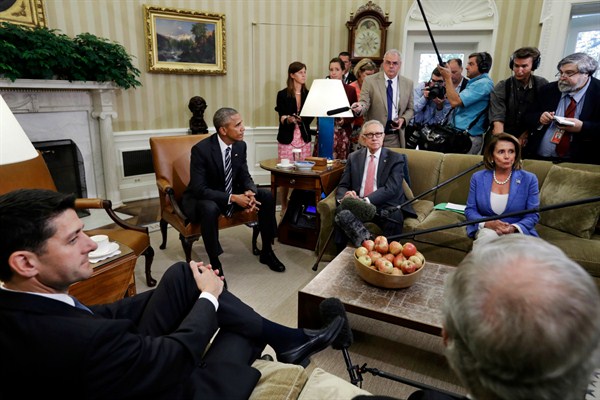With Donald Trump’s presidential campaign rapidly disintegrating, the chances are good that Hillary Clinton will be the next president of the United States. Nate Silver’s FiveThirtyEight election forecast now pegs Clinton’s odds of victory at over 80 percent. The New York Times gives her a close to 90 percent chance of winning. Barring some monumental and unprecedented shift over the next few weeks, the outcome of the 2016 election is set.
If current trends hold, this will be a monumental defeat for the Republicans more broadly, potentially causing them not only to miss a chance to retake the White House, but to lose control of Congress as well. The Democrats only need to gain four seats to control the Senate. The chances of that are about even. While it’s a long shot for the Democrats to pick up the 31 seats they need to control the House of Representatives, it is possible.
If the Democrats do take the White House and one or both houses of Congress, it might seem to open a path to repairing the dysfunctional relationship between the executive and legislative branches that emerged during the George W. Bush administration and worsened during President Barack Obama’s tenure. Many Republican leaders and opinion-shapers on the political right attribute the problem to Obama, who they claim imposed big changes in American foreign and national security policy on an unwilling Congress—and simply bypassed it via executive orders when that failed. As evidence they point to things like the U.S. military disengagement from Iraq under a plan negotiated by the Bush administration, the 2015 Iran nuclear deal, and tension in the U.S. relationship with Israel. If Obama really is responsible for the problem, having someone different in the White House, even another Democrat, might heal the wounds.

